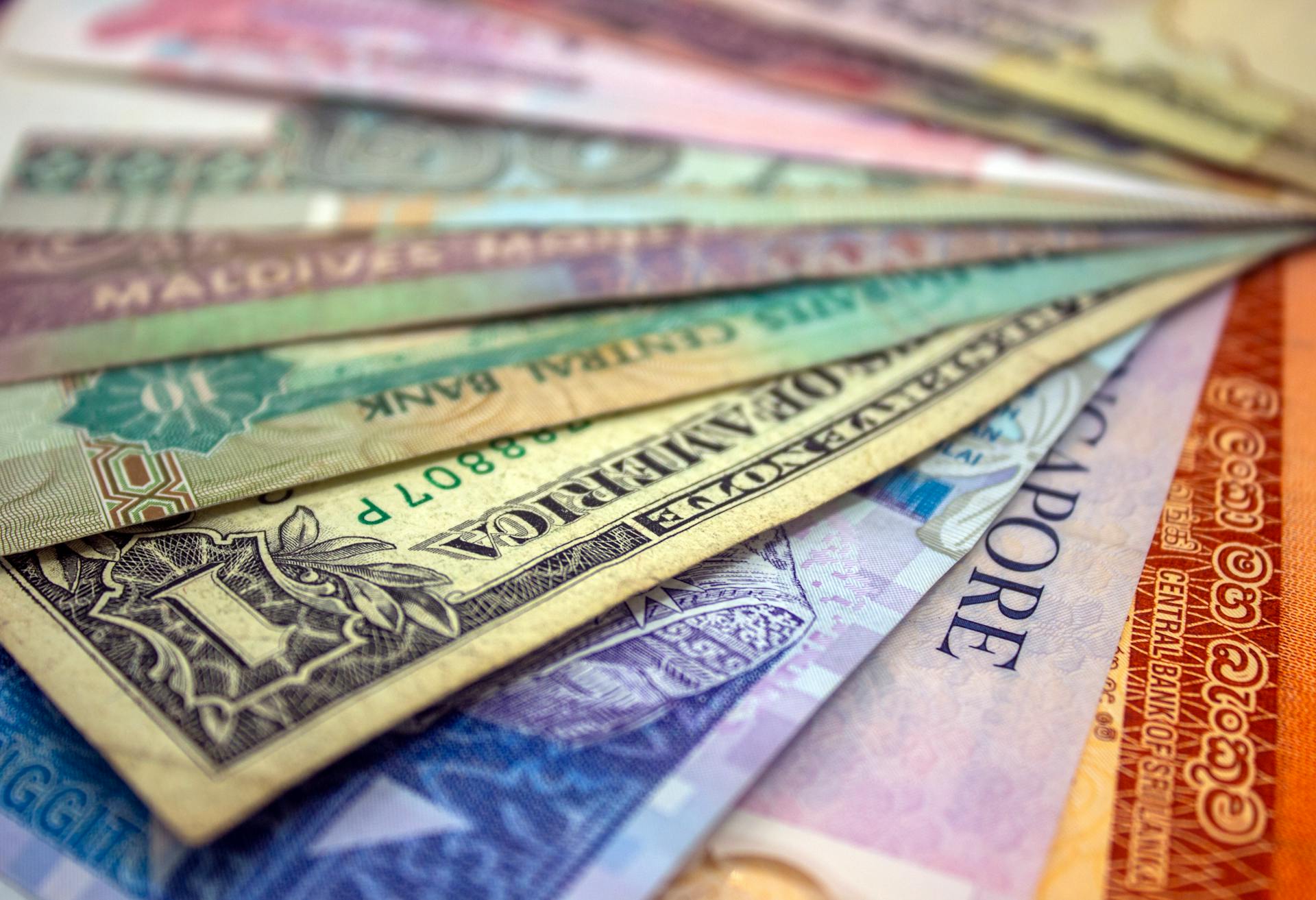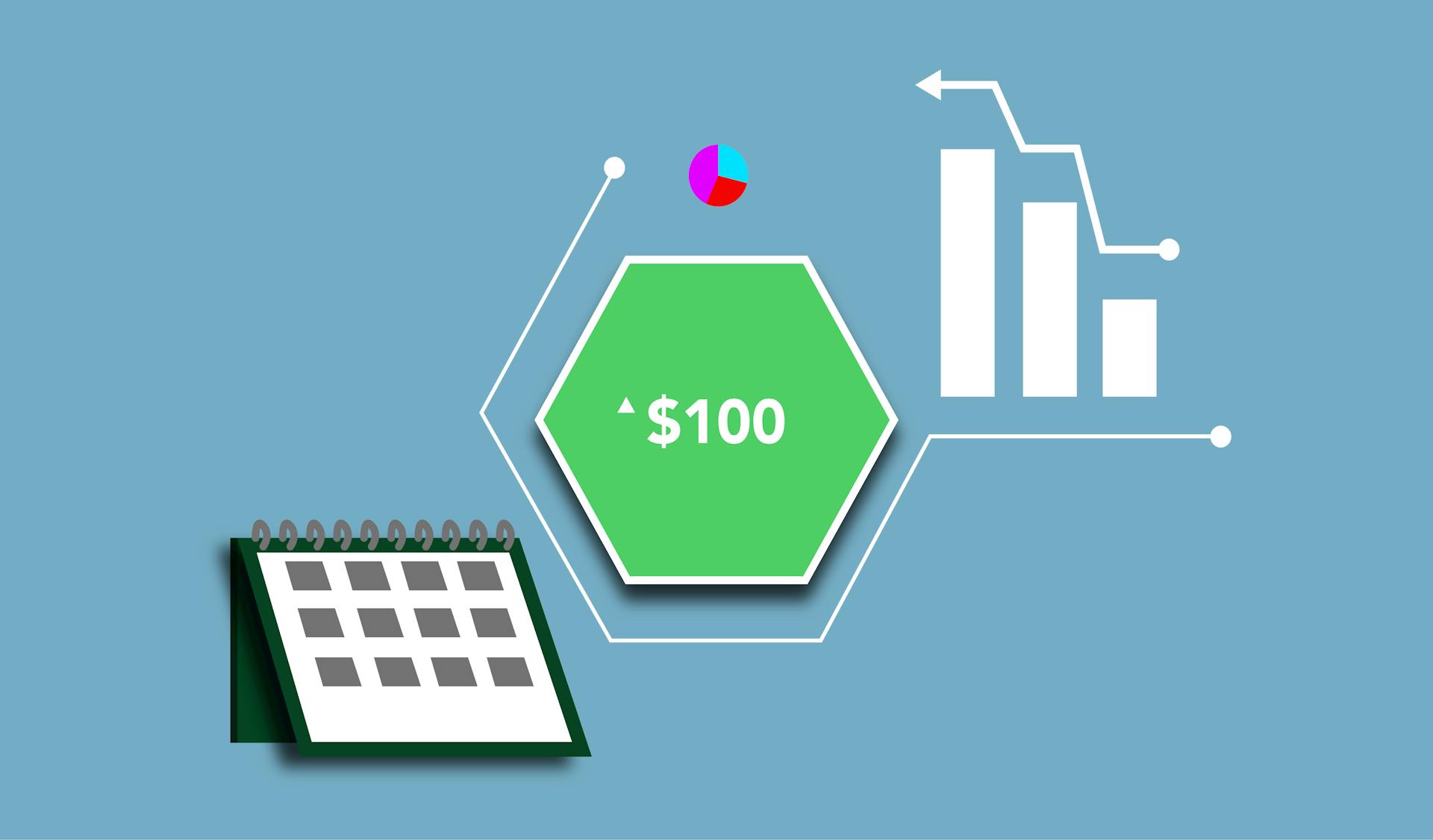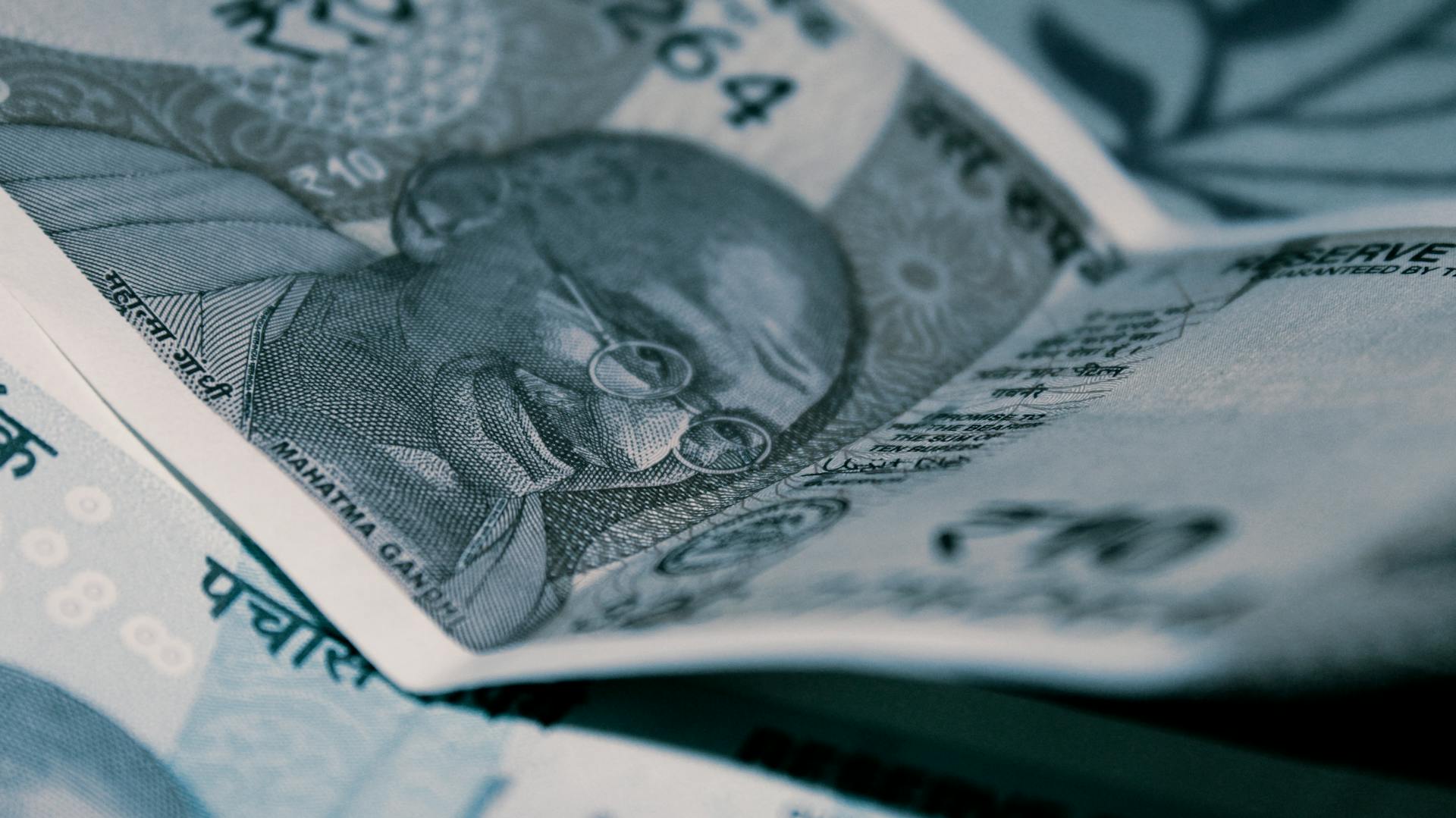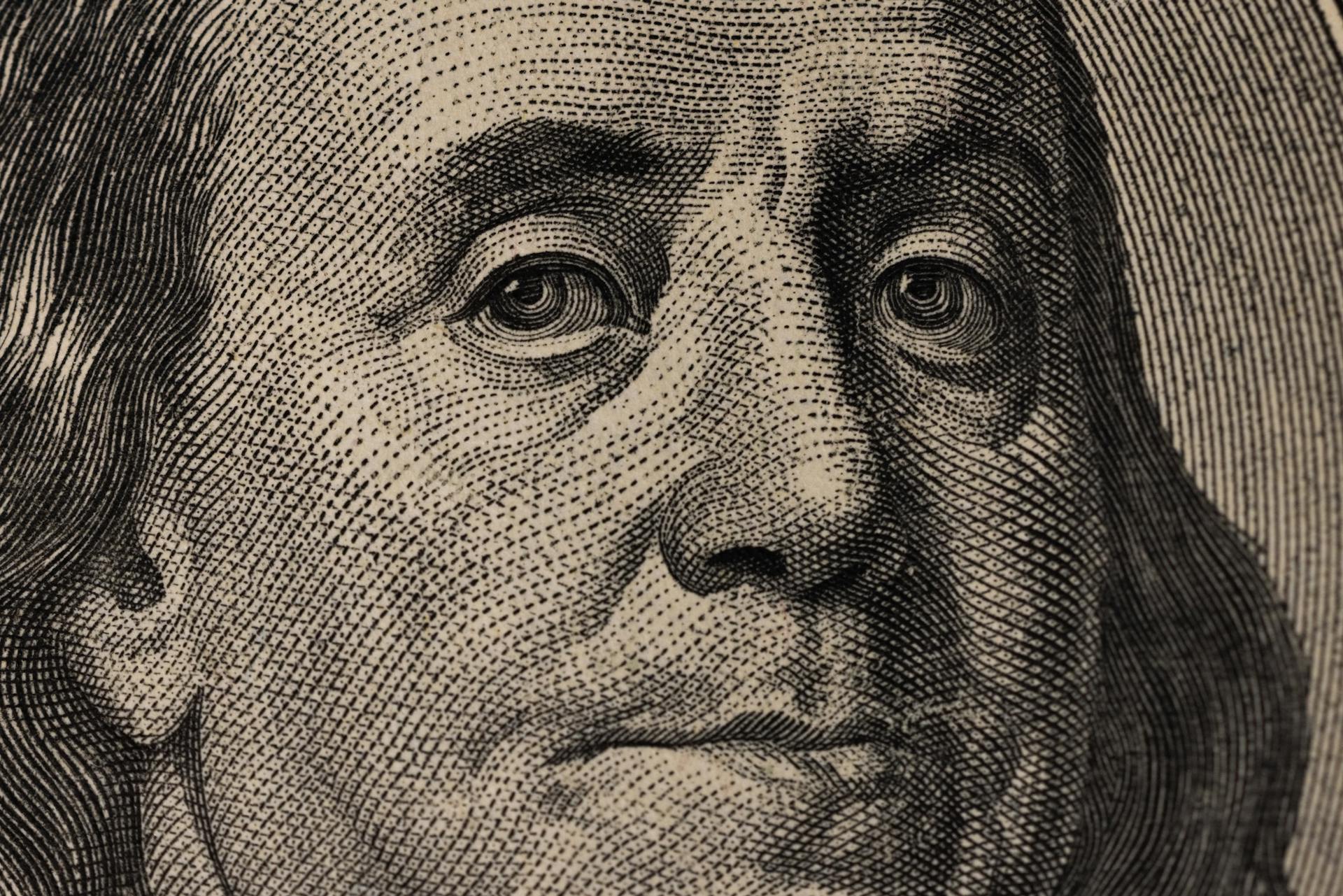
Currency appreciation can have a significant impact on individuals and economies. A strong currency can make a country's exports more expensive for foreign buyers, potentially reducing demand.
This can be seen in the example of the Japanese yen, which has appreciated in value over the years due to the country's trade surplus. As a result, Japanese exports have become more expensive for foreign buyers, leading to a decrease in demand.
A strong currency can also make imports cheaper, but this is not always a positive outcome. For instance, a country with a strong currency may struggle to compete with foreign competitors who can produce goods at a lower cost due to a weaker currency.
In addition, currency appreciation can have a negative impact on a country's tourism industry, as a stronger currency can make travel to the country more expensive for foreign visitors.
Worth a look: Appreciation Letter
What is Currency Appreciation?
Currency appreciation is an increase in the value of one currency in relation to another currency, causing the exchange rate to rise over time.
This means that if you're an importer, you'll have to pay less in domestic currency for imported goods, which can be a good thing.
But, for exporters, a stronger currency can make their goods more expensive for foreign buyers, potentially lowering demand.
The domestic economy benefits from appreciation, making foreign travel and education cheaper, which is a positive outcome.
Central banks often intervene when excessive appreciation threatens economic growth, which highlights the importance of balance in currency fluctuations.
Additional reading: Japanese Yen Appreciation
How it Works
Currency appreciation happens when the value of one currency rises relative to another currency in the foreign exchange market.
The demand for a currency increases or its supply decreases, causing the currency to appreciate. This can be seen in the example of the Indian rupee appreciating against the US dollar, where INR buys more dollars than before.
A currency appreciates when its value increases compared to its pair, which is different from increases in securities prices. In a floating rate exchange system, the value of a currency constantly changes based on supply and demand.
On a similar theme: When Was Crypto Currency Invented
If the value of the US dollar (USD) appreciates against the euro (EUR) by 3.26%, $100 becomes worth more in EUR, which is good news for those needing to exchange USD for EUR.
The appreciation of a currency impacts trade flows and the domestic economy, so central banks actively manage appreciation trends accordingly.
Discover more: Japan Currency vs Usd
Causes
Causes of currency appreciation can be attributed to a combination of factors.
Strong economic fundamentals, such as high GDP growth, low inflation, and stable fiscal and monetary policies, can attract foreign investment, driving up demand for a country's currency.
Interest rate differentials, where a country's interest rates are higher than others, can make its assets more attractive to foreign investors, increasing demand for the country's currency.
Foreign investment, whether through direct investment or the stock market, can also lead to currency appreciation, as foreign investors convert their currency into the local currency.
A trade surplus, where a country exports more than it imports, can create excess demand for the country's currency, leading to appreciation.
Speculation by traders and investors who believe a currency will strengthen can also contribute to currency appreciation.
Government intervention, where a government or central bank actively influences exchange rates, can also impact currency appreciation.
Lower inflation rates can also lead to currency appreciation, as a lower inflation rate can cause higher interest rates, attracting more international investment.
Investors' sentiment can influence the demand and supply of a country's currency, with positive sentiment leading to appreciation.
Government trade policies, recession, speculation, terms of trade, political stability, and a nation's current accounts can also impact currency appreciation.
Here are some key causes of currency appreciation in a floating exchange rate system:
- Balance of trade
- Speculation
- Other factors in the international capital market
These factors can lead to unpredictable changes in a currency's value, making it difficult to forecast.
In some cases, a surge in purchases of foreign goods can lead to a depreciation of the home currency, while an inflow of foreign currency can create demand for the home currency, leading to appreciation.
Speculative movements of funds can also cause a currency to appreciate or depreciate, as investors anticipate a "correction" in the currency's value.
A longer-run trend of appreciation can be caused by a country's inflation being lower than other countries, according to the principle of long-run purchasing power parity.
Effects of Currency Appreciation
Currency appreciation can have a significant impact on a country's economy. It can make a country's exports more expensive for foreign buyers, leading to a decrease in demand for domestic products.
A strong currency can also make imports cheaper, which can lead to an increase in demand for foreign products. This can be positive for the country's economy, as it can lead to lower prices and higher consumer spending.
Currency appreciation can also lead to a decrease in foreign investment, as a stronger currency can make it less attractive for foreign investors to invest in the country. This can hurt the country's economy, as foreign investment can bring much-needed capital and create jobs.
A country's trade balance can also be affected by currency appreciation, as a stronger currency can make exports more expensive and imports cheaper, leading to a decrease in the trade balance. This can hurt the country's economy in the long term.
Currency appreciation can also have an impact on the tourism industry, making it more expensive for foreigners to visit and potentially leading to a decrease in tourism revenues. However, it can also make it cheaper for domestic tourists to travel abroad, which can lead to an increase in tourism revenues.
Example 2
Currency appreciation can have a significant impact on trade. The Indian Rupee (INR) appreciating against the US Dollar (USD) is a good example of this. In this scenario, the exchange rate changed from 1 USD = 70 INR to 1 USD = 65 INR.
This means that 1 US Dollar can now buy 65 Rupees, compared to 70 Rupees earlier. The INR has become more valuable compared to the USD.
Here are some key effects of currency appreciation:
- Increased demand for the INR currency relative to the USD
- Imports to India become cheaper for businesses
- Indian exports become more expensive for foreign buyers
The appreciation of the INR indicates that the demand for the currency has increased relative to the USD. This is a result of the supply and demand factors in the forex market.
In the example, the exchange rate changed from 1 USD = 70 INR to 1 USD = 65 INR, which means the INR has appreciated or strengthened against the USD.
A different take: Mexico Currency to Inr
#4 - Lower Inflation
Currency appreciation can have a significant impact on inflation, and it's essential to understand how it works. A stronger currency can make imports cheaper, which can lead to lower inflation.
This is because a stronger currency means that foreign goods become cheaper for domestic consumers, reducing the overall cost of living. As a result, businesses may be able to keep prices low, which can help to reduce inflation.
For example, if the US dollar appreciates against the euro, it will be cheaper for American consumers to buy European products. This can lead to lower prices for goods and services, which can help to reduce inflation.
According to Example 5, "With an appreciation in domestic currency, the imports will become cheaper, and the aggregate demand will also tend to fall. Therefore, all this together can lower the rate of inflation to a significant extent."
In fact, a stronger currency can lead to a decrease in inflation by as much as 3.26%, as seen in Example 10, where a 3.26% appreciation in the US dollar against the euro would make $100 worth 95 euros instead of 92 euros.
Overall, a stronger currency can have a positive impact on inflation, making it cheaper for consumers to buy goods and services.
You might like: Why Us Currency Is Strong
Advantages and Disadvantages

Currency appreciation can have a significant impact on a country's economy. It boosts the purchasing power of domestic currency in foreign trade and markets, helping to lower imported inflation.
Domestic consumers benefit from cheaper imports as foreign goods become more affordable. Domestic companies can import raw materials and equipment at a lower cost, reducing their production costs and improving competitiveness.
However, currency appreciation can also decrease export demand, making imports cheaper and hurting domestic import-competing industries. This can lead to reduced competitiveness and make domestic goods more expensive.
A stronger domestic currency makes imports less expensive, but it also reduces returns for foreign investors and discourages foreign capital inflows. This can widen the trade deficit gap of an economy.
Here are some key advantages and disadvantages of currency appreciation:
Ultimately, currency appreciation can have both positive and negative effects on a country's economy. It's essential for policymakers to carefully consider these factors when implementing economic policies.
Exchange Rates and Currency Appreciation
Exchange rates are determined by the supply and demand of currencies in the foreign exchange market. When demand for a currency increases, the value of the currency appreciates, and when there is a decrease in demand, the value of the currency depreciates.
A country's economic growth, political stability, and high-interest rates can cause currency appreciation. For example, the Japanese yen has been appreciating against the US dollar due to Japan's economic growth and political stability.
Exchange rates can affect the economy of a country positively or negatively. A strong currency can make imports cheaper, but it can also make exports more expensive, leading to a decrease in exports and an increase in imports.
Governments can intervene in the foreign exchange market to influence the value of their currency. This can be done through several means, such as buying or selling their currency in the foreign exchange market.
The impact of currency appreciation on the economy can be significant. If the US dollar strengthens, it can lead to a decline in the demand for US exports, which could hurt the country's economy.
On a similar theme: Us Dollar Coins in Circulation

Central banks play a critical role in managing exchange rates. They can intervene in the foreign exchange market by buying or selling currencies to stabilize exchange rates.
Political events such as elections, geopolitical tensions, and trade agreements can significantly affect exchange rates. For example, when the UK voted to leave the European Union in 2016, the British pound depreciated significantly against other currencies.
Currency hedging is a strategy that involves protecting against potential losses that could result from changes in exchange rates. This can be done through forward contracts and options.
Discover more: Crypto Currencies India
Economic Impact
Currency appreciation can have a significant impact on a country's economy, particularly on its trade balance. A stronger currency can make a country's exports more expensive for foreign buyers, leading to a decrease in demand and potentially causing job losses.
A country's GDP can also be affected by currency appreciation, as a decrease in exports can lower the GDP. This can ultimately harm the country's economy.
The cost of servicing foreign-denominated debt can decrease with a stronger currency, which can be beneficial for governments and businesses that have borrowed in foreign currencies.
Political Effects

A currency's value has far-reaching consequences that affect not just the economy, but also the country's politics. Special interest groups often lobby for changes in the currency's value, which can lead to a government being punished for a currency depreciation.
A currency appreciation benefits consumers, making foreign goods cheaper, but harms national producers who face increased competition from foreign producers. This is because a stronger currency makes exports more expensive and less competitive in the global market.
If a country relies heavily on imported goods, a currency depreciation can have severe consequences, including reduced living standards, weakened economic growth, and increased inflation. In contrast, a depreciation can also strengthen domestic producers and increase aggregate output.
Currency fluctuations can be a double-edged sword, and governments must carefully consider the potential consequences of their monetary policies.
Worth a look: Foreign Currency Coins Exchange
Economic Changes
Currency appreciation can have a significant impact on the economy, making exports more expensive and imports cheaper. This can lead to a decrease in exports, hurting industries reliant on international sales, and potentially causing job losses.

A strong currency can also make foreign goods cheaper in the domestic market, leading to overall downward pressure on domestic prices. This can be beneficial for consumers, but it can also decrease foreign demand for domestic products.
Countries with stable political systems and consistent policies tend to have a stronger currency, as investors view them as more attractive and less risky. This can lead to higher demand for the currency and a stronger exchange rate.
A country's balance of trade can also be affected by currency appreciation, as it can make domestic goods more expensive in foreign markets and foreign goods less competitive in the domestic market. This can lead to a decrease in exports and an increase in imports, hurting the country's trade balance.
In addition, currency appreciation can also lead to a decrease in foreign investment, as a stronger currency may make the country less attractive to foreign investors. This can hurt the country's economy, as foreign investment can bring much-needed capital and create jobs.
On the other hand, currency appreciation can also lead to lower inflation, as the cost of goods will decrease due to cheaper imports. This can be positive for a country's economy, as it can lead to lower interest rates and more investment.
Overall, currency appreciation can have both positive and negative effects on the economy, and it's essential to carefully consider these effects before making any decisions.
You might enjoy: Global Currency Market
Frequently Asked Questions
How to make a currency appreciate?
To make a currency appreciate, increase interest rates, reduce borrowing, and decrease government spending to lower the money supply and boost demand. This simple yet effective approach can strengthen your currency and increase its value.
Sources
- https://www.kotaksecurities.com/investing-guide/currency/what-is-currency-appreciation-and-what-causes-it/
- https://www.wallstreetmojo.com/currency-appreciation/
- https://fastercapital.com/content/Currency-appreciation--When-Exchange-Rates-Strengthen.html
- https://en.wikipedia.org/wiki/Currency_appreciation_and_depreciation
- https://www.investopedia.com/terms/c/currency-appreciation.asp
Featured Images: pexels.com


